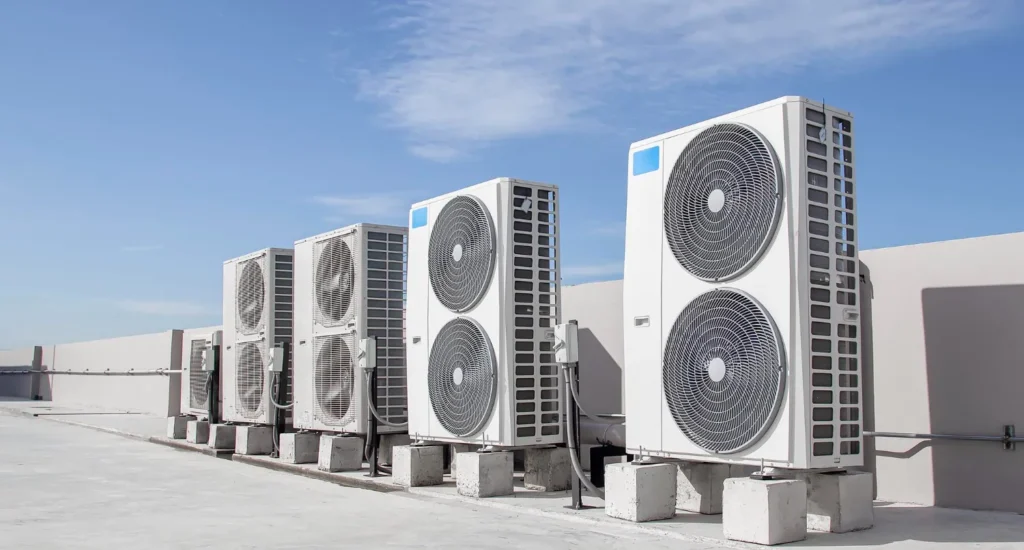As the summer season draws near, the last thing you want is to be caught off guard by a malfunctioning air conditioning unit. How to Prepare Air Conditioner for Summer heat is not just about ensuring comfort; it’s also about optimizing efficiency and extending the lifespan of your system. At 75 Degree AC, we’re committed to helping you keep your home cool and comfortable. Follow our comprehensive guide to prepare your air conditioner for the summer of 2025.
Best Practices For Your AC Unit for Summer Preparation

Put in a New Air Filter:
Replacing the air filter is one of the simplest yet most effective steps in preparing your AC for summer. A clean filter is essential for maintaining good air quality in your home and ensuring optimal airflow through your system. Over time, filters can become clogged with dust, pet hair, and other pollutants, which can reduce the efficiency of your AC and strain its components. It’s recommended to check your air filter monthly and replace it every 1-3 months, depending on usage and the type of filter. A new air filter will improve your AC’s performance and help reduce energy costs.
Clean Your Inside Unit:
The indoor unit of your air conditioner, often called the evaporator unit, plays a crucial role in cooling your home. Over time, dust and debris can accumulate on the evaporator coil and other internal components, hindering the unit’s ability to absorb heat effectively. To clean your inside unit, turn off the power to your AC system for safety. Gently remove any dust from the evaporator coil using a soft brush or a cloth. Be careful not to damage the delicate fins on the coil. If there’s significant buildup, you may need to use a coil cleaner, following the manufacturer’s instructions. Also, check the condensate drain line to ensure it’s not clogged, which can damage water and affect indoor humidity levels.
Clean the Outside Unit:
The outside unit of your air conditioner is exposed to the elements and can accumulate dirt, leaves, and debris over time. This buildup can restrict airflow and reduce the efficiency of your unit. To clean the outside unit:
- Start by turning off the power to the system.
- Remove debris from the unit’s top and sides using a brush or vacuum cleaner.
- Use a garden hose to rinse the fins from the inside out gently.
- Avoid using a pressure washer, as it can damage the fins.
Cleaning the outside unit improves airflow and helps your air conditioner operate more efficiently.
Straighten the Fins
The fins on the outside unit of your air conditioner can quickly become bent or damaged, mainly if they are located in a high-traffic area. Bent fins can restrict airflow, reducing the efficiency of your unit. To straighten the fins:
- Use a fin comb, which can be purchased at most hardware stores.
- Gently run the fin comb along the fins to straighten them, being careful not to damage them further.
Straightening the fins improves airflow and helps your air conditioner operate more efficiently.
Clean Up Around the Outdoor Unit
The area around your outdoor unit should be clear of any obstructions, such as plants, bushes, or debris. Obstructions can restrict airflow to the unit, reducing its efficiency. Trim any overgrown plants or bushes around the unit and remove debris or clutter from the area. Ensure at least two feet of clearance around the unit for optimal performance. Cleaning up around the outdoor unit improves airflow and helps your air conditioner operate more efficiently.
Program Your Thermostat
Installing a programmable thermostat can help you save energy and money during the summer months. A programmable thermostat allows you to set the temperature higher when you’re away from home and lower it when you’re home and need cooling. This helps reduce energy consumption while ensuring your home is comfortable when you need it to be. Programming your thermostat can also help you avoid unnecessary cooling costs and reduce wear and tear on your air conditioner.
Reliable AC Service
Before the summer season begins, it’s a good idea to schedule a professional AC service. A skilled technician can inspect your system, identify potential issues, and ensure your air conditioner runs efficiently. Regular maintenance can prevent costly repairs and extend the life of your unit. A reliable AC service ensures your air conditioner is ready to keep you cool and comfortable throughout the summer.
Need an Expert for Summer AC Preparation?
If you need help preparing your air conditioner for summer or encounter any issues during the process, it’s best to seek help from a professional HVAC technician. An expert can guide the best practices for preparing your AC unit and ensure it is in optimal condition for the summer months. They can also address specific concerns or issues, ensuring your AC unit is ready to keep you cool and comfortable throughout the summer.
FAQs
How do I set my air conditioner for summer?
To set your air conditioner for summer, start by selecting the desired temperature on your thermostat. A typical setting is between 72-76°F for cooling. You can adjust the temperature based on your comfort level and energy-saving goals. Use a programmable thermostat to schedule temperature changes according to your daily routine, ensuring that your home is fantastic when needed.
Which mode is best for AC in summer?
In summer, the best mode for your air conditioner is the “cool” mode. This mode activates the compressor to cool the air in your home. Avoid using the “fan” mode as it only circulates air without cooling it, which may increase humidity levels without providing cooling comfort.
Is 72 a suitable temperature for air conditioning?
Setting your thermostat to 72°F is generally considered comfortable for most people. However, you can adjust the temperature based on your preference. Remember that setting too low a temperature can result in higher energy consumption and utility bills. It’s recommended to find a balance between comfort and energy efficiency.
How do you use AC on a hot day?
Use your air conditioner efficiently to stay cool on a hot day while minimizing energy consumption. Set your thermostat to a comfortable temperature and close doors and windows to prevent cool air escaping. Use ceiling fans to circulate the cool air, and consider using a programmable thermostat to adjust the temperature based on your schedule. Avoid setting the temperature too low, as it can strain your AC and increase energy consumption.




